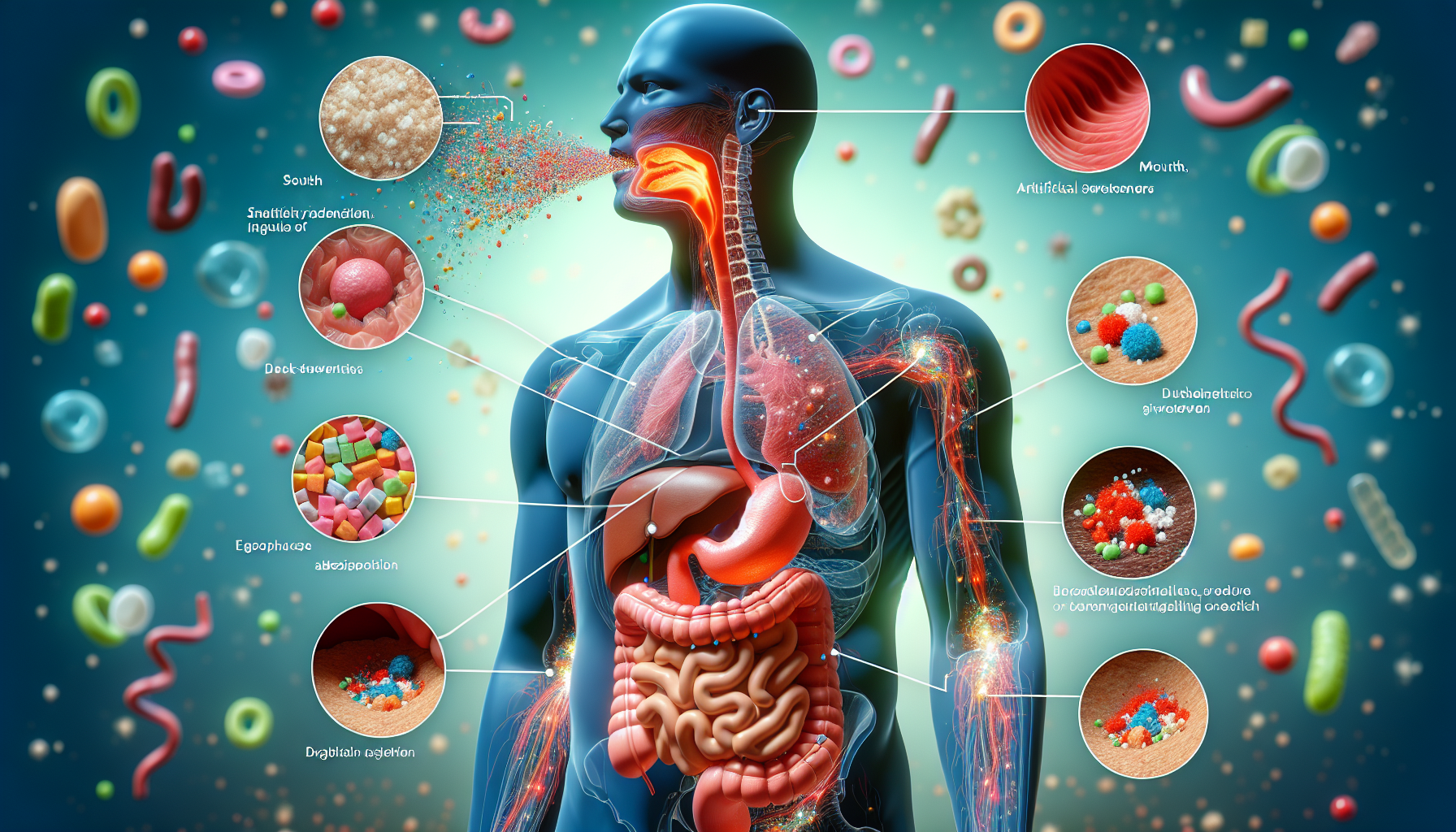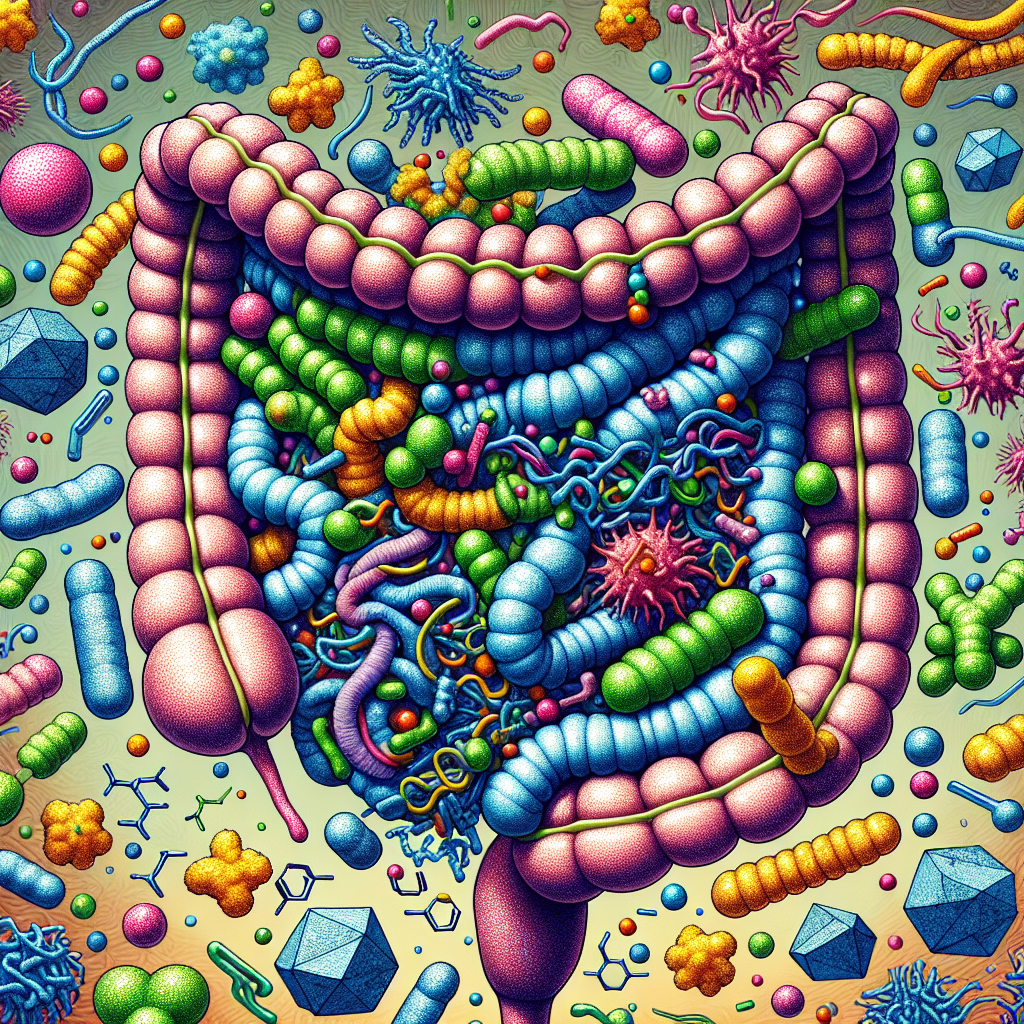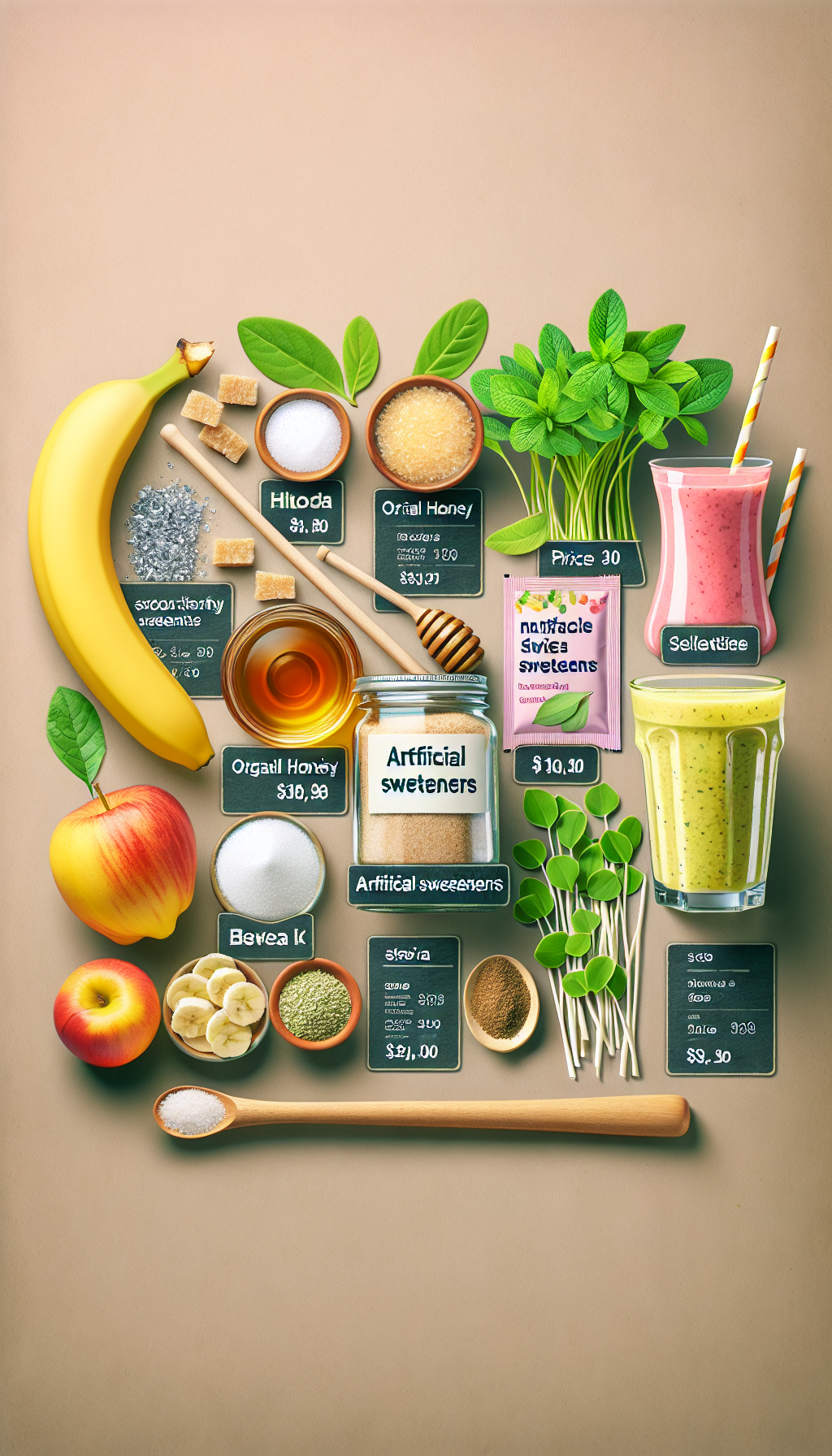Artificial sweeteners have become a staple in the modern diet, offering the allure of sweetness without the caloric content of sugar. However, their effects on digestive health are a growing concern among health professionals and consumers alike. In this comprehensive exploration, we will delve into how these sugar substitutes may influence our gut health and overall well-being.
Understanding Artificial Sweeteners
Artificial sweeteners, also known as non-nutritive sweeteners, are chemical compounds that mimic the sweetness of sugar while providing little to no energy. They are widely used in a variety of products, including beverages, baked goods, and as tabletop sweeteners. Some of the most common artificial sweeteners include aspartame, sucralose, and saccharin.
While these sweeteners can be beneficial for weight management and controlling blood sugar levels, particularly for individuals with diabetes, their long-term effects on the digestive system remain a topic of debate. Given the intricate connection between digestive health and overall wellness, it is critical to understand the potential implications of consuming these substances.
Impact on Gut Microbiota
The gut microbiota is a complex community of microorganisms residing in our digestive tract, playing a crucial role in nutrient absorption, immune function, and even mental health. There is emerging evidence that artificial sweeteners can alter the gut microbiota’s composition and activity, potentially leading to dysbiosis—an imbalance that can have several negative consequences, including gastrointestinal disturbances, increased inflammation, and a compromised immune response.
For instance, research has indicated that the consumption of certain artificial sweeteners can reduce the population of beneficial bacteria in the gut while promoting the growth of less favorable microbes. This shift in the microbial balance may influence the gut’s permeability, potentially leading to conditions such as leaky gut syndrome.
Gastrointestinal Symptoms and Sensitivity
Some individuals may experience gastrointestinal symptoms such as bloating, gas, and diarrhea following the consumption of artificial sweeteners. These symptoms can be particularly pronounced in those with a sensitivity to these compounds or pre-existing digestive disorders. For example, those managing irritable bowel syndrome (IBS) may find that artificial sweeteners exacerbate their symptoms, aligning with the principles of a Low FODMAP Diet and Its Benefits for Irritable Bowel Syndrome.
Influence on Appetite and Metabolism
Contrary to the belief that artificial sweeteners are helpful for weight loss, some studies suggest that they may disrupt the body’s ability to regulate calorie intake. The sweet taste without the accompanying calories can confuse the body’s metabolic responses, potentially leading to increased appetite and cravings for sugary foods. This can undermine weight management efforts and have knock-on effects on digestive health.
Additionally, there is evidence that artificial sweeteners can affect glycemic control by altering the gut microbiota and influencing the secretion of hormones that regulate blood sugar. While these sweeteners do not contain glucose, their impact on the body’s metabolic processes may still affect those with diabetes or insulin resistance.
External Research on Artificial Sweeteners and Digestive Health
The scientific community continues to study the effects of artificial sweeteners on digestive health, with some research pointing to potential concerns. For instance, a study published in the journal ‘Nature’ found that consumption of certain artificial sweeteners led to changes in the gut microbiota associated with glucose intolerance. Other research has linked these sweeteners to an increased risk of certain digestive conditions.
To gain a deeper understanding, it is worth exploring some niche resources that provide additional insights:
- The Influence of Non-nutritive Sweeteners on the Composition of the Gut Microbiota
- Artificial Sweeteners: A Systematic Review of Metabolic Effects in Youth
- Artificial Sweeteners Induce Glucose Intolerance by Altering the Gut Microbiota
Strategies for a Healthier Gut
Given the potential risks associated with artificial sweeteners, individuals concerned about their digestive health may consider alternative strategies to maintain a healthy gut. These may include:
- Emphasizing natural, whole foods in the diet
- Incorporating prebiotic and probiotic foods to support the gut microbiota
- Limiting the intake of artificial sweeteners and monitoring for any adverse effects
For more targeted approaches to enhancing gut health, exploring topics such as Strategies to Enhance Gut Flora and Promote Digestive Balance can provide actionable advice.
Conclusion
While artificial sweeteners offer certain benefits, their impact on digestive health warrants careful consideration. The potential for disrupting gut microbiota, causing gastrointestinal symptoms, and influencing appetite and metabolism suggests that moderation is key. As we continue to unravel the complexities of the gut and its relationship with diet, it is essential to stay informed and make choices that support our long-term health and well-being.
For those looking to further understand the connection between diet and digestive health, exploring the relationship between cholesterol levels and digestive health or the effects of processed foods on gut health can offer additional perspective.
In conclusion, while the allure of zero-calorie sweetness is tempting, it is essential to weigh the potential digestive health impacts of artificial sweeteners. Being mindful of the foods we consume and staying informed about ongoing research can help us navigate the complex interplay between diet and health.



